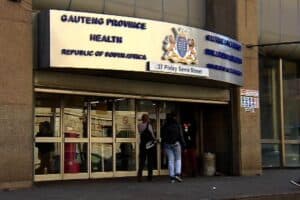Treasury offers South Africa's unemployed, underpaid and over taxed youth a new low bracket savings bond to bank surplus cash.

National Treasury has created a new bond savings product in a bid to encourage young South Africans to save.
The RSA Retail Savings Top-Up Bond product is reportedly due to high demand by the public for a more affordable RSA Retail Savings Bonds product.
“The product is targeted at younger investors who are less likely to invest large sums of money,” said National Treasury in a statement.
The RSA Retail Savings Top-Up Bond allows young South Africans to start saving with as little as R500, with the option to top up with a minimum of R100 at any time over the investment term.
Informal groups, such as social clubs and stokvels, who operate on monthly pooled savings, are also eligible to invest in the RSA Retail Savings Top-Up Bond.
“Any individual with a valid RSA ID number and a bank account within the Republic can start investing,” said National Treasury.
Cash-strapped youth are either unemployed or underpaid
Treasury’s efforts to foster a saving culture in the younger generations, while commendable, is evidence of the inherent disconnect between government and its constituents.
Stats SA reported last year that one in every two young people in the labour force did not have a job in the first quarter of 2021.
“Those aged 15–24 years are more vulnerable in the labour market with an unemployment rate of over 63%,” said the report.
The burden of unemployment is also concentrated amongst the youth as they account for 59,5% of the total number of unemployed persons.
“The unemployment rate among the youth is high irrespective of education level,” said the report.
A PwC report titled South Africa Economic Outlook Responding to higher inflation and rising interest rates said South Africa has 11.5 million unemployed adults, 7.6 million of which are ready and willing to work. But the rest (3.9 million) have lost hope of ever finding employment.
Young South Africans are tax-burdened
Younger people fortunate enough to be employed or have a source of income are buckling under increased personal income taxes.
Government has no tax incentives for young people entering the job market or owning start-ups, leaving them with no choice but to take up loans to stay afloat.
South Africa has one of the highest tax rates in the world, according to a Business Tech report.
The 2018 report showed that South Africa’s income tax rate at just under 10% is the 12th highest, below Germany, Austria and the United States, at the time.
“A more worrying trend is South Africa’s tax to GDP ratio, which is approaching 30% (currently at 27.3%), far higher than the global average of 15%, and even higher than the Euro-zone’s rate of 19%.”
Research by Alexander Forbes 2021 Member Insights shows that the Covid-19 pandemic had a more significant impact on South Africa’s millennials due to high unemployment rates – and they’re unlikely to afford retirement.
According to Alexander Forbes Executive Strategy and Customer Experience manager Viresh Maharaj, retirement planning companies like Forbes are at risk of becoming irrelevant to millennials.
Increased cost of living
South Africans are currently paying the highest rates in history for petrol which has since pushed up the prices of all goods, especially food.
Low-income consumers will also suffer the most because they already cannot afford nutritious food, and they will also have to pay more for transport to work and school.
The long-term impact on inflation will see even the middle class battling financially as higher interest rates follow, just as everyone starts to recover from the financial after-effects of the pandemic.
The timing of the newly established RSA Retail Savings Top-Up Bond, which is expected to be launched on 1 April 2022, is curious.
Back in December, cash-strapped South Africans with retirement savings were given a chance to access a portion of their monies on a short term basis through the National Treasury’s two-pot proposal.
“In an ideal world, retirement savings would be only be accessed upon retirement.
“But many South Africans don’t have short-term savings or had to dig into their short-term savings to survive the devastating economic impact of Covid-19,” National Treasury said at the time.
NOW READ: South Africa named world’s most unequal country – again






